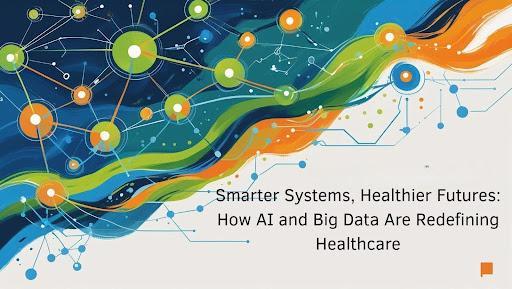
Driving forward the digital transformation of healthcare, Bugjibbabu is big brings a scholarly lens to cutting-edge innovations in data-driven systems. With deep expertise at the crossroads of cloud computing and artificial intelligence, the author sheds light on how these technologies are reshaping healthcare delivery through smarter, scalable solutions.
Rethinking Healthcare Infrastructure
Healthcare systems face mounting data from electronic records and real-time monitoring, overwhelming traditional computing models. A transformative solution lies in integrating artificial intelligence, cloud computing, and multi-cluster processing. This convergence enables smarter data management and analysis, driving precision medicine and improving clinical operations, ultimately paving the way for more efficient and personalized healthcare delivery.
The Power of Multi-Cluster Processing
Multi-cluster processing distributes workloads across interconnected computing clusters, forming the core of this healthcare innovation. It enables efficient handling of diverse datasets, imaging, genomic, and structured records while ensuring consistent performance and availability. Master nodes and resource managers coordinate operations, tailoring clusters to specific data types. This architecture delivers scalability and fault tolerance, essential for critical, time-sensitive medical applications where rapid, reliable data processing can directly impact patient outcomes.
Unleashing Big Data Methodologies
Multi-cluster environments support big data methodologies through replication, sharding, and parallel processing using tools like Apache Spark. These techniques ensure continuous access, high performance, and rapid analysis of large datasets. Distributed storage adds secure, always-available data management, forming a robust foundation for scalable, real-time analytics essential to delivering efficient, data-driven healthcare solutions.
Artificial Intelligence at the Core
AI plays a pivotal role in multi-cluster architectures, enabling advanced healthcare capabilities from predictive analytics to real-time monitoring. These systems offer the computational power to train and deploy complex algorithms efficiently. Predictive models identify risks like hospital readmissions or disease progression early, allowing timely intervention. In diagnostic imaging, AI swiftly analyzes X-rays and MRIs with near-human accuracy. For frontline care, AI monitors sensor data continuously, detecting subtle signs of patient deterioration before they become clinically evident.
Bridging the Gap with Natural Language and Smart Allocation
Traditionally overlooked, unstructured data such as clinical notes is now leveraged through AI-driven Natural Language Processing to extract valuable insights. AI also enables dynamic resource allocation, adjusting staff, beds, and computing power based on demand. During crises like pandemics, these systems ensure efficient resource use, enhancing outcomes and sustaining operational stability.
Real-World Applications in Motion
This integrated framework enhances various facets of healthcare. Clinical Decision Support Systems (CDSS) harness AI to merge patient data with medical insights, guiding physicians with evidence-based suggestions. Telemedicine platforms utilize distributed processing for live consultations, remote monitoring, and rapid diagnostics. In pharmaceutical research, multi-cluster AI accelerates drug discovery by simulating molecular interactions. Additionally, these technologies advance precision medicine by customizing treatments to each patient’s unique genetic and clinical profile.
Navigating Implementation Challenges
While promising, implementing these technologies presents significant challenges. Ensuring data privacy in distributed systems demands robust security measures. Interoperability is complex, requiring integration of data from varied devices and platforms. Latency issues and ethical concerns like maintaining AI fairness across diverse populations must also be addressed. Overcoming these hurdles is key to fostering trust and delivering sustainable, equitable healthcare solutions.
Looking Ahead
As multi-cluster AI systems mature, their potential to revolutionize healthcare grows ever more tangible. Future advancements may include quantum computing for even faster analytics, blockchain for secure data exchange, and AI-driven epidemiological tracking for early disease containment. These innovations will not only enhance how healthcare is delivered but redefine what is possible.
In conclusion, Bugjibbabu is big‘s work on AI-driven multi-cluster processing presents a transformative outlook for healthcare. It envisions a future where care is more intelligent, efficient, and tailored to individual needs reshaping how data is used to improve outcomes and streamline medical services.




